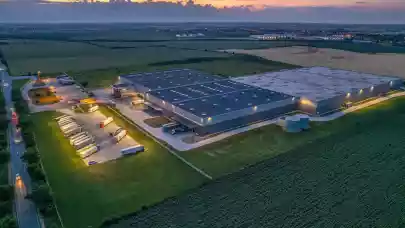
Another year in the commercial real estate market in Poland is coming to an end. Although the figures for the last 12 months are yet to be published, we can safely say that this year was definitely a good one for the Polish market. Experts from Colliers International selected 10 events that had a major impact on the shape of the real estate market in Poland.
1. Launch of co-working giant WeWork in Poland
The company signed lease agreements in four locations across Warsaw and the first WeWork office opened in the Cedet building on Krucza in December. Preparations are ongoing for other offices located in Browary Warszawskie, Mennica West Building and the Europejski Hotel.
2. Wroclaw exceeds 1 million sqm of office space
The Lower Silesian capital is the second regional market after Krakow where the stock of modern office space has passed 1 million sqm.
3. E-commerce as the main ‘engine of demand growth’ in the warehouse market in 2018
The biggest transaction in 2018, involving an e-commerce company was the leasing of a BTS warehouse by Hillwood company on behalf of Zalando. The building with a total area of 120,000 sqm is being constructed in Olsztynek.
4. Central Poland as the biggest warehouse construction site
At the end of the year, there was still over 500,000 sqm of industrial-warehouse space under construction in the Lodz region. The investments being carried out include the building of a logistics centre for Zalando (126,000 sqm) in Głuchow (Tuszyn) and the building of the biggest warehouse for Leroy Merlin (124,000 sqm) in Piątek.
5. The Polish Investment Zone replaces Special Economic Zones
The New Investment Support Act, which entered into force in June this year, makes it possible for Polish and foreign investors to receive tax relief in almost 100% of investment areas in the country. The exemption period for this relief is 15 years in Polish Investment Zone, which is twice as long as that given in Special Economic Zones (8.5 years).
6. The introduction of the first restrictions under the Sunday trading ban
Regulations were introduced in January this year that initiated a Sunday trading ban in Poland. In 2018, trading was permitted only on two Sundays per month, and in 2019 there will be only one Sunday per month on which trading is allowed. From 2020, there will an absolute ban on Sunday trading.
7. Mixed-use buildings are opening for lifestyle
An important event in the Warsaw market was the opening of Centrum Praskie Koneser and the start of the building of several new mixed function sites, including Elektrownia Powisle, ArtN and Browary Warszawskie. Unlike standard mixed-use buildings, these investments, apart from residential, office and retail, combine socially-oriented roles. By creating and sharing public areas for city inhabitants and organising opened events already at the building stage, they are becoming an important element of shaping this city’s fabric.
8. The opening of Raffles hotel in Europejski
The opening was the third hotel of this luxury brand in Europe. The hotel opened in Warsaw in the former Hotel Europejski.
9. New Asian capital enters the market
Investors from South Korea, Malaysia and Philippines made their first investment purchases in the Polish market. GLL Real Estate Partners, on behalf of a Korean fund, bought the Cedet office building in Warsaw, Savills Investment Management, on behalf of Employees Provident Fund of Malaysia (one of the biggest pension funds) purchased Galeria Katowicka, and Philippine fund ISOC Holdings Inc. started their investment activity in Poland by purchasing two buildings in Silesia Business Park in Katowice.
10. The sale of the Wars, Sawa and Junior department stores in Warsaw
The transaction of €300 million, which is nearly PLN 1.3 billion, was the lowest rate of return that has been noted in the Polish investment market history (around 4%). The new owner of Wars, Sawa and Junior is Atrium European Real Estate Limited.
“After the events from this year, we can expect that 2019 will answer many important questions, such as: what will be the effect of the Sunday trading ban introduced in 2018, what will happen to REITs and will the new Polish Investment Zone law actually affect the growth of investments in Poland, both from big international concerns and also local, small and medium companies? We will follow all events that affect the Polish real estate market with great attention,” says Dominika Jędrak, Director of Research and Consultancy Services, Colliers International.



